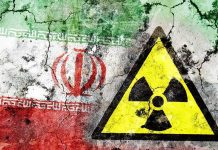
Ugandan President Yoweri Museveni has signed a controversial law allowing military courts to try civilians, effectively sidestepping a Supreme Court ruling and raising alarming concerns about targeted political repression as the nation approaches crucial elections.
Key Takeaways
- Uganda’s new UPDF Amendment Bill 2025 allows military tribunals to try civilians, contradicting a previous Supreme Court ruling that deemed such trials unconstitutional.
- The law primarily targets civilians accompanying military units and those in possession of firearms or ammunition, with critics arguing it’s designed to silence political opposition.
- Opposition leader Bobi Wine claims all opposition members are being targeted, while the government insists the law is necessary to address armed criminals and prevent political violence.
- Uganda’s legal associations and human rights organizations plan to challenge the constitutionality of the law, citing serious concerns about judicial independence and fair trials.
- The amendment was controversially passed amid an opposition boycott and heavy police presence, highlighting the contentious nature of this significant judicial shift.
Military Courts Expansion: Undermining Constitutional Protections
The newly enacted UPDF Amendment Bill 2025, signed into law by President Museveni, represents a stark departure from established judicial norms in Uganda. This legislation empowers military tribunals to try civilians found with military equipment or accompanying military units, effectively nullifying a previous Supreme Court ruling that prohibited such practices. The law was rushed through parliament with notable opposition boycotts and amid significant police presence, raising questions about the democratic processes involved in its creation. The timing is particularly controversial as Uganda approaches elections where Museveni faces challenges from opposition figures.
While the government maintains the law requires tribunal presiders to have legal qualifications and maintain independence, critics argue these safeguards are insufficient when the fundamental structure of military courts lacks the impartiality necessary for civilian justice. The amendment attempts to address the Supreme Court’s previous concerns by outlining coordination between civilian and military courts, but this has done little to assuage fears about potential abuse. Many see this legislation as part of a broader pattern of judicial manipulation that threatens Uganda’s adherence to constitutional principles and international legal standards.
Opposition Concerns: Targeting Political Adversaries
Opposition figures, particularly presidential challenger Bobi Wine, have voiced strong concerns that the law serves as a mechanism to target political opponents rather than enhance national security. The military courts have historically been associated with prolonged detentions, limited defense rights, and harsher penalties compared to civilian courts. There are documented instances where opposition figures have been initially charged in military courts before being transferred to civilian courts, creating a troubling precedent that this new law could exacerbate further. Critics point to the potential for fabricated evidence as a means to silence government critics.
“All of us in the opposition are being targeted by the act,” stated Bobi Wine, highlighting the perception that the law represents a calculated political maneuver rather than a genuine security measure.
Human rights lawyer Gawaya Tegulle offered a particularly stark assessment of the consequences for political opposition: “If you are a political opponent then they will find a way of getting you under the military court and then you know your fate is sealed… once there, justice will never visit your door.” This perspective underscores the profound impact this legislation could have on political freedom and fair judicial process in Uganda. The government’s reassurances about legal qualifications for tribunal officials have done little to address these fundamental concerns about politicized justice.
Government Defense: Security Necessity vs. Rights Concerns
Supporters of the new law have framed it as essential for maintaining national security and effectively addressing armed criminal threats. The government position emphasizes that military courts can process cases more efficiently than civilian courts, particularly for armed offenders. Colonel Chris Magezi defended the legislation by stating: “The law will deal decisively with armed violent criminals, deter the formation of militant political groups that seek to subvert democratic processes, and ensure national security is bound on a firm foundational base. If it ain’t broke, don’t fix it!”
President Museveni has personally criticized the Supreme Court’s previous decision limiting military courts’ jurisdiction, arguing that the civilian court system is inadequate for handling certain security threats. This perspective reveals a fundamental tension between security imperatives and constitutional rights protections. The government’s emphasis on preventing political violence comes at a time when political tensions are high in Uganda, with opposition forces organizing ahead of elections. The law represents a significant shift in the balance between executive authority and judicial independence that will likely have lasting consequences for Uganda’s democratic institutions.
Legal Challenges and International Response
Uganda’s legal community has responded with swift condemnation of the new law. The Uganda Law Society and Bar Association have announced plans to challenge its constitutionality, arguing that it fundamentally undermines the rule of law. These professional bodies maintain that military courts lack the structural independence necessary for fair civilian trials and that the law represents a troubling regression in Uganda’s constitutional development. Legal experts anticipate prolonged court battles as these challenges move through the judicial system, creating uncertainty about the law’s ultimate implementation.
The international community has also voiced significant concerns, with United Nations officials and human rights organizations condemning the legislation as contrary to basic principles of fair trials and judicial independence. The law has attracted scrutiny regarding Uganda’s compliance with international human rights standards and treaty obligations. As these legal challenges unfold, they will test the independence of Uganda’s judiciary and its ability to uphold constitutional principles against executive pressure. The outcome will significantly impact not only Uganda’s internal governance but also its standing in the international community.



